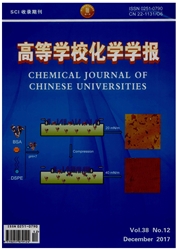

 中文摘要:
中文摘要:
含手性因素的化学药物有多种对映体,它们在人体内的药理活性、代谢过程及毒性存在着显著差异.手性醇作为合成手性药物的重要中间体,在当今制药领域中有着广泛的用途.在生物催化方面,由于其区域性和立体选择性强、反应条件温和、操作简便、公害少,且能完成一些化学合成难以进行的反应而受到有机化学家、药物化学家和微生物学家的广泛关注.在于整体微生物催化方面,国内外研究得最多的是酵母和一些真菌类的生物等.但对于具有光合作用的微生物催化剂还原酮类化合物的研究还未见报道.由于在不对称还原过程中光能微生物可以利用光能,通过电子传递,将NAD(P)H再生.因此,在催化还原酮类化合物方面,可依靠光能,不需其它共底物,具有比其它微生物更为独特的优越性.
 英文摘要:
英文摘要:
Rhodobacter sphaeroide as a new biocatalysts were investigated in the asymmetric reduction of ketones to chiral alcohols. The cells were used in an aqueous system for the asymmetric reduction of acetophenone to prepare (S)-1-phenyl-ethanol by photo-electron-transfer reactions. It is found that higher product yield and product enantiomeric excess could be achieved. The results show that the enantiomer excess of the chiral alcohols was up to 99% (e. e. ) and the yield is more than 90%. The effects of DCMU and the optimal reaction conditions on the reaction were investigated. The results show that the reaction was controlled by light completely, the optimal substrate concentration is 17.0 mmoL/L, the optimal cell mass concentration is 0. 2 g/mL, the optimal pH is 7-8, the optimal reaction time was 72 h.
 同期刊论文项目
同期刊论文项目
 同项目期刊论文
同项目期刊论文
 期刊信息
期刊信息
